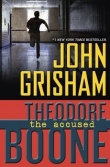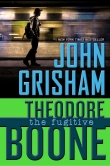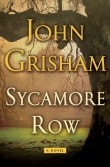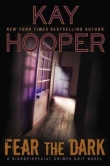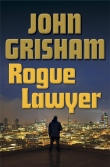
Текст книги "Gray Mountain"
Автор книги: John Grisham
Соавторы: John Grisham
Жанры:
Политические детективы
,сообщить о нарушении
Текущая страница: 16 (всего у книги 27 страниц)
23
The nightmare began in the middle of Monday morning, as all the lawyers were working quietly at their desks, not a client in sight. The silence was shattered when Mattie screamed, a painful, piercing cry that Samantha was certain she would remember forever. They raced to her office. “He’s dead!” she wailed. “He’s dead! Donovan’s dead!” She was standing with one hand on her forehead; the other hand held the phone in midair. Her mouth was open, her eyes filled with terror. “What!” Annette shrieked. “They just found him. His plane crashed. He’s dead.”
Annette fell into a chair and began sobbing. Samantha stared into Mattie’s eyes, both unable to speak for a second. Barb was in the door, both hands over her mouth. Samantha finally walked over and took the phone. “Who is it?” she asked.
“Jeff,” Mattie said as she slowly sat down and buried her face in her hands. Samantha spoke into the receiver but the line was dead. Her knees were weak and she backed into a chair. Barb collapsed into another one. A moment passed, a moment laden with fear, shock, and uncertainty. Could there be a mistake? No, not if Donovan’s only sibling called his beloved aunt to deliver the worst possible news. No, it was not a mistake or a joke or prank; it was the unbelievable truth. The phone was ringing again, all three incoming lines blinking as the word was spreading rapidly through the town.
Mattie swallowed hard and managed to say, “Jeff said Donovan flew to Charleston yesterday to meet with some lawyers. Jeff was out of town over the weekend and Donovan was by himself. Air traffic control lost contact with him around eleven last night. Somebody on the ground heard a noise, and they found his plane this morning in some woods a few miles south of Pikeville, Kentucky.” Her quivering voice finally gave out and she lowered her head.
Annette was mumbling, “I can’t believe this. I can’t believe this.” Samantha was speechless. Barb was a blubbering mess. More time passed as they cried and tried to come to grips with what was happening. They calmed a bit as the first hint of reality settled in. After a while, Samantha left the room and locked the front door. She moved quietly around the offices, closing curtains and blinds. Darkness engulfed the clinic.
They sat with Mattie as the phones rang and rang in the distance and all the clocks seemed to stop. Chester, with his own key, entered through the rear door and joined the mourning. He sat on the edge of the desk with one hand on his wife’s shoulder and patted gently as she sobbed and whispered to herself.
Softly, Chester asked, “Have you talked to Judy?”
Mattie shook her head and said, “No. Jeff said he would call her.”
“Poor Jeff. Where is he?”
“He was in Pikeville, taking care of things, whatever that means. He was not doing too well.”
A few minutes later, Chester said, “Let’s go home, Mattie. You need to lie down, and no one’s working around here today.”
Samantha closed her office door and fell into her chair. She was too stunned to think of anything else, so she stared at the window for a long time and tried to organize her thoughts. Organization failed her, and she was consumed with the sudden desire to flee Brady and Noland County and all of Appalachia and perhaps never come back. It was Thanksgiving week and she was planning to leave anyway, to head for D.C. and spend time with her parents and maybe some friends. Mattie had invited her to Thanksgiving lunch, but she had already declined.
Some Thanksgiving. They were now staring at a funeral.
Her cell phone vibrated. It was Jeff.
At four thirty that afternoon, he was sitting on a picnic table at a remote scenic overlook near Knox in Curry County. His truck was parked nearby and he was alone, as expected. He did not turn to see if it was her, did not move as she walked across the gravel toward him. He was gazing into the distance, lost in a world of jumbled thoughts.
She kissed him on the cheek and said, “I’m so sorry.”
“Me too,” Jeff said, and managed a quick smile, a forced one that lasted only a second. He took her hand as she sat beside him. Knee to knee, they silently watched the ancient hills below them. There were no tears and few words, at first. Jeff was a tough guy, far too macho to be anything but stoic. She suspected he would do his crying alone. Deserted by his father, orphaned by his mother, and now left abandoned by the death of the only person he ever truly loved. Samantha could not imagine his anguish at this awful moment. She herself felt as though there was a gaping hole in her stomach, and she had known Donovan for less than two months.
“You know they killed him,” he said, finally putting into words what they had been wondering throughout the day.
“And who are they?” she asked.
“Who are they? They are the bad guys, and there are so many of them. They are ruthless and calculating and for them killing is no big deal. They kill miners with unsafe mines. They kill hillbillies with contaminated water. They kill little boys who are sound asleep in their trailer. They kill entire communities when their dams break and their slurry ponds flood the valleys. They killed my mother. Years ago they killed union men who were striking for better wages. I doubt if my brother is the first lawyer they’ve killed.”
“Can you prove it?”
“I don’t know, but we’ll try. I was in Pikeville this morning—I had to identify the body—and I stopped by to see the sheriff. I told him I suspected foul play and I wanted the airplane treated like a crime scene. I’ve already notified the Feds. The plane did not burn up, just crashed. I don’t think he suffered. Can you imagine having to identify the body of your brother?”
Her shoulders slumped at the thought. She shook her head.
He grunted and said, “They had him at the morgue, just like you see on television. Open the vault, slide him out, slowly pull back the white sheet. I almost threw up. His skull was cracked.”
“That’s enough,” she said.
“Yes, that’s enough. I suppose there are certain things in life you’re never prepared to do, and after you do them you swear you’ll never do them again. Do most people go through life without ever having to identify a body?”
“Let’s talk about something else.”
“Okay. Good idea. What do you want to talk about?”
“How do you prove it was a criminal act?”
“We’ll hire experts to examine the plane from prop to tail. The NTSB will review the radio transmissions to see what was going on right before the crash. We’ll piece this thing together and figure it out. A clear night, perfect weather, an experienced pilot with three thousand hours in his logbook, one of the safest airplanes in history; it just doesn’t make sense otherwise. He finally pissed off the wrong people, I guess.”
A breeze blew in from the east, scattering leaves and bringing a chill. They huddled closer together like old lovers, which they were not. Not old, not new, not current. They’d had dinner twice, nothing more. The last thing Samantha needed was a complicated romance with a definite expiration date. She wasn’t sure what he wanted. He spent a lot of time away from Brady, and she suspected there was a girl involved. They had absolutely no future together. The present might be fun, a romp here, a frolic there, a little companionship on cold nights, but she wasn’t about to rush in.
He said, “You know, I’ve always thought the worst day of my life was the day Aunt Mattie came to my classroom at school and told me my mother was dead. I was nine years old. But this is worse, much worse. I’m numb, so numb you could stick knives in me and I wouldn’t feel anything. I wish I’d been with him.”
“No you don’t. One loss is enough.”
“I cannot imagine life without Donovan. We were basically orphans, you know, raised by relatives in different towns. He was always looking out for me, always had my back. I got into a lot of trouble, and I wasn’t afraid of my relatives or schoolteachers or the cops or even the judges. I was afraid of Donovan, and not in a physical sense. I was afraid of letting him down. The last time I went to court I was nineteen years old. He had just finished law school. They’d caught me with some pot, a small amount that I was actually trying to sell but they didn’t know it. The judge gave me a break—a few months in the county jail but nothing serious. When I was about to walk up to the bench and face the judge, I turned around and looked at the courtroom. There was my brother, standing next to Aunt Mattie, and he had tears in his eyes. I’d never seen him cry. So I cried too, and I told the judge he would never see my face again. And he didn’t. I’ve had one speeding ticket since then.” His voice cracked slightly as he pinched his nose. Still no tears, though. “He was my brother, my best friend, my hero, boss, confidant. Donovan was my world. I don’t know what I’ll do now.”
Samantha felt like crying. Just listen, she said to herself. He needs to talk.
“I’m going to find these guys, Samantha, do you hear me? If it takes every dime I have and every dime I have to steal, I’ll track them down and get revenge. Donovan wasn’t afraid to die, neither am I. I hope they’re not.”
“Who’s your number one suspect?”
“Krull Mining, I guess.”
“And that’s because of the documents?”
He turned and gave her a look. “How do you know about the documents?”
“I flew with Donovan to Hammer Valley one Saturday. We had lunch with Vic in Rockville. They were talking about Krull Mining and let something slip.”
“That’s surprising. Donovan was more careful than that.”
“Does Krull Mining know he has the documents?”
“They know the documents are missing and they strongly suspect we’ve got them. The documents are deadly, poisonous, and beautiful.”
“You’ve seen them?”
He hesitated for a long time, then said, “Yes, I’ve seen them and I know where they are. You wouldn’t believe what’s in them. No one will.” He paused for a moment as if he needed to shut up, but he also wanted to talk. If Donovan trusted her so much, then perhaps he could too. He went on, “There’s one memo from the CEO in Pittsburgh to their headquarters in London in which the CEO estimates the cost of cleaning up the Peck Mountain mess at $80 million. The cost of paying a few tort claims to families hit by cancer was estimated at only ten million max, and that was on the high side. The tort claims at that time had not been filed and there was no certainty that they would ever be filed. Thus, it was far cheaper to let the people drink the water, die of cancer, and maybe spend a few bucks in a settlement than it was to stop the leaks in the slurry pond.”
“And where is this memo?”
“With all the rest. Twenty thousand documents in four boxes, all tucked away.”
“Somewhere close by?”
“Not far from here. I can’t tell you because it’s too dangerous.”
“Don’t tell me. I suddenly know more than I want to.”
He released her hand and slipped off the picnic table. He bent down and picked up a handful of pebbles and began tossing them into the ravine below. He was mumbling something she could not understand. He went through another handful, then a third, tossing them at nothing in particular. Shadows were forming and clouds were moving in.
He walked back to the table, stood beside her and said, “There’s something you should know. They’re probably listening to you. Your phone at the office, maybe even a bug or two in your apartment. Last week we had a guy comb the office again, and, sure enough, there are bugs everywhere. Just be careful what you say because someone is listening.”
“You’re kidding, right?”
“For some strange reason, Samantha, today I’m not in the mood to bullshit.”
“All right, all right, but why me?”
“They watch us closely, especially Donovan. He’s been living for years with the assumption somebody was listening. That’s probably why he flew to Charleston yesterday to meet with the lawyers face-to-face. They’ve been meeting in various hotel rooms, staying away from surveillance. The thugs have seen you hanging around with us. They have all the money in the world so they watch anybody who comes and goes, especially a new lawyer in town.”
“I don’t know what to say. I’ve talked to my father all afternoon about airplane crashes.”
“Which phone?”
“Both, office and cell.”
“Be careful with the office. Stick to the cell. We may even start using prepaid cell phones.”
“I’m not believing this.”
He sat next to her, took her hand, and flipped up the collar of his jacket. The sun was dipping behind the mountains and the breeze was stronger. With his left hand, he slowly wiped a tear from his cheek. When he spoke his voice was scratchy and hoarse. “I remember when my mother died I couldn’t stop crying.”
“It’s okay to cry, Jeff.”
“Well, if I can’t cry for my brother I guess I’ll never cry for anyone.”
“Have a go. It might make you feel better.”
He was quiet for a few minutes, silent but not tearful. They squeezed closer together as darkness settled in and the breeze came and went. After a long gap, she said, “I talked to my father this afternoon. Needless to say he’s devastated. He and Donovan became real pals in the past month or so and Dad admired him a lot. He also knows everyone in this particular field and can find the right experts to analyze the crash. He said that over the years he’s handled many small aircraft fatalities.”
“Any that were deliberately caused?”
“Yes, as a matter of fact. Two of them. One in Idaho and one down in Colombia. If I know my dad, he’s on the phone and computer right now looking, checking out experts for small Cessna crashes. He said the main thing is to make sure the airplane is secure at this point.”
“It’s secure.”
“Anyway, Marshall Kofer is on board if we need him.”
“Thanks. I like your father.”
“So do I, most of the time.”
“I’m cold, are you cold?”
“Yes.”
“And we’re supposed to go to Mattie’s, right?”
“I think so.”
Because there was so little left of the Gray family, and their home had been destroyed years earlier, the cakes and casseroles had to be delivered somewhere else, and Mattie’s was the logical choice. The food began arriving late in the afternoon, and along with each dish came a lengthy visit by whoever prepared it. Tears were shed, condolences passed along, promises made to help in any way, and, most important, details were pursued. The men loitered on the front porch and by the driveway, smoking and gossiping and wondering what really caused the crash. Engine failure? Was he off course? Someone said he had not radioed Mayday—the universal distress call for pilots. What could this possibly mean? Most of the men had flown only once or twice in their lives, some never, but such inexperience did not diminish the speculation. Inside, the women organized the tide of food, often dipping in for quick taste tests, while fussing over Mattie and pondering aloud the current state of Donovan’s marriage to Judy, a pretty young thing who’d never found her place in town but was now remembered with unrestrained affection.
Judy and Mattie had eventually worked out the arrangements. Judy at first preferred to wait until Saturday for a memorial service, but Mattie felt it was wrong to force folks to suffer through Thanksgiving with such unpleasant business still hanging. Samantha was learning, as she watched it all from as much distance as possible, that traditions were important in Appalachia, and there was no hurry in burying the dead. After six years in New York, she was accustomed to quick send-offs so the living could get on with life and work. Mattie, too, seemed eager to speed things along, and she finally convinced Judy to hold the service on Wednesday afternoon. Donovan would be in the ground when they awoke on Thursday and got on with the holiday.
The United Methodist Church, 4:00 p.m. Wednesday, November 26, with the burial to follow in the cemetery behind the church. Donovan and Judy were members there, though they had not attended in years.
Jeff wanted to bury his brother on Gray Mountain, but Judy didn’t like the idea. Judy didn’t like Jeff and the feelings were mutual. As Donovan’s legally married wife, Judy had full authority over all arrangements. It was a tradition, not a law, and everyone understood it, including Jeff.
Samantha hung around Mattie’s for an hour Monday night, but was soon tired of the ritual of sitting with other mourners, then grazing through the food covering the kitchen table, then stepping outside for fresh air. She was tired of the mindless chatter of people who knew Mattie and Chester well, but not their nephew. She was tired of the gossip and speculation. She was amused by the speed with which the small town embraced the tragedy and seemed determined to make the most of it, but the amusement soon became frustration.
Jeff, too, seemed bored and frustrated. After being hugged and fawned over by the large women he hardly knew, he quietly vanished. He pecked Samantha on the cheek and said he needed some time alone. She left soon thereafter and walked through the quiet town to her apartment. Annette called her over and they drank tea in the dark den until midnight, and talked of nothing but Donovan Gray.
Before sunrise, Samantha was wide awake, sipping coffee and online. The Roanoke paper ran a brief story about the accident, but there was nothing new. Donovan was described as a devoted advocate for the rights of coal miners and landowners. The Tate verdict was mentioned, along with the Hammer Valley lawsuit against Krull Mining and the Ryzer lawsuit against Lonerock Coal and its lawyers. A lawyer pal in West Virginia described him as “a fearless protector of the native beauty of Appalachia” and “a staunch enemy of wayward coal companies.” There was no mention of possible foul play. All applicable agencies were investigating. He had just turned thirty-nine and left a wife and one child.
Her father called early and was curious about the funeral arrangements. He offered to drive down and sit with her during the service, but Samantha said no thanks. Marshall had spent most of Monday working the phone, digging for as much inside info as possible. He promised to have “something” by the time they got together in a few days. They would discuss the Ryzer case, which was now in limbo for obvious reasons.
The office was like a funeral home, dark and gloomy with no prospects of a pleasant day. Barb hung a wreath on the door and locked it. Mattie stayed home and the rest of them should have. Appointments were canceled and phone calls were ignored. The Mountain Legal Aid Clinic was not really open for business.
Nor was the law office of Donovan M. Gray, three blocks down Main Street. An identical wreath hung on its locked door, and inside Jeff huddled with the secretary and the paralegal and tried to put together a plan. The three were the only remaining employees of the firm, a firm that was now dead.
24
A tragic death, a well-known lawyer, free admission, a nosy little town, another boring Wednesday afternoon—mix all of these ingredients and the church was filled long before 4:00 p.m., when the Reverend Condry rose to begin the memorial service. He offered a windy prayer and sat down as the choir sang the first of several mournful dirges. He rose again for some Holy Scripture and a rambling, somber thought or two. The first eulogy was given by Mattie, who struggled to contain her emotions as she talked about her nephew. She proved quite capable of talking while crying, and at times had everyone else crying with her. When she told the story of Donovan finding the body of his mother, her dear sister Rose, her voice cracked and she stopped for a moment. She swallowed hard and forged ahead.
Samantha was five rows back, between Barb and Annette, all three clutching tissues and dabbing their cheeks. All three were thinking the same thought: Come on, Mattie, you can do it. Let’s get to the end now. Mattie, though, was in no hurry. This was Donovan’s only farewell service and no one would be rushed.
The closed casket was parked at the foot of the pulpit and covered with flowers. Annette had whispered that in these parts many funeral services took place with the casket open, so that the mourners were required to view the deceased while great things were said about him. It was an odd custom, one aimed at making the moment far more dramatic than necessary. Annette said she planned to be cremated. Samantha confessed she had not considered any of her options.
Fortunately, Judy had better sense than to allow such a spectacle. She and her daughter were seated in the front row, just a few feet from the casket. As advertised, she was gorgeous, a slender brunette with eyes as dark as Donovan’s. Their daughter, Haley, was six years old and had been struggling with her parents’ separation. Now she was thoroughly overwhelmed by her father’s death. She clutched her mother and never stopped crying.
Samantha’s car was packed and pointed north. She wanted desperately to leave Brady and race home to D.C., where her mother promised to be waiting with take-out sushi and a fine bottle of Chablis. Tomorrow, Thanksgiving, they would sleep late and have a long lunch at an Afghan kabob dive that was always packed on the holiday with Americans who either disliked turkey or wanted to avoid family.
Mattie finally succumbed to a wave of emotion. She apologized and sat down. Another hymn. A few more observations from the Reverend Condry, borrowing from the wisdom of the apostle Paul. And another lengthy eulogy, this from a close friend from their law school days at William & Mary. After an hour, a lot of the crying was over and folks were ready to go. When the reverend closed with the benediction, the crowd left. Most reassembled behind the church and huddled around a purple burial tent next to the grave. The reverend was brief. His remarks seemed off the cuff but on point. He prayed eloquently, and as he wound down Samantha began inching away. It was customary for each person to file past the grieving family and offer a few words of comfort, but Samantha had had enough.
Enough of the local customs. Enough of Brady. Enough of the Gray brothers and all their drama and baggage. With a full tank and an empty bladder, she drove with a purpose for five hours nonstop to her mother’s apartment in central D.C. For a few moments, she stood on the sidewalk beside her car and took in the sights and sounds, the traffic and congestion and closeness of so many people living so near to each other. This was her world. She longed for SoHo and the frenetic energy of the big city.
Karen was already in her pajamas. Samantha quickly unpacked and changed. For two hours they sat on cushions in the den, eating and sipping wine, laughing and talking at the same time.
The litigation fund that promised to bankroll the fraud and conspiracy case against Lonerock Coal and Casper Slate had already yanked the money. The deal was off. Donovan had filed the lawsuit as a lone gunman with the promise that other plaintiffs’ lawyers would soon hop on board to form a first-rate litigation team. Now, though, with him dead and his pals ducking for cover, the case was going nowhere. Marshall Kofer was greatly frustrated by this. It was a “gorgeous lawsuit,” one that he would tee up in an instant if only he could.
He wasn’t giving up. He explained to Samantha that he was running the case through his vast network of trial lawyer contacts from coast to coast, and was confident he could put together the right team, one that would attract sufficient funding from another investment group. He was willing to put up some of his own money and to take an active role in the litigation. He envisioned himself as the coach on the sideline, sending in plays to his quarterback.
They were at lunch the day after Thanksgiving. Samantha preferred to avoid the topics of lawsuits, Donovan, the Ryzer case, Lonerock Coal, and so forth, anything, really, to do with Brady, Virginia, and Appalachia. But as she toyed with her salad, she realized that she should be thankful for litigation. Without it, she and her father would have so little to discuss. With it, they could talk for hours.
He spoke quietly, his eyes flitting here and there as if the restaurant might be filled with spies. “I have a source at NTSB,” he said, as smug as always when he had some inside dirt. “Donovan did not make a distress call. He was flying at seven thousand feet in clear weather, no sign of trouble, then he vanished from the radar. If there was an engine problem, he had ample time to report it and give his exact location. But, nothing.”
“Maybe he just panicked,” Samantha said.
“I’m sure he panicked. The plane starts going down; hell, they all panic.”
“Can they determine if he was using the autopilot?”
“No. A small plane like that doesn’t have a black box, so there’s no data on what was happening. Why do you ask about the autopilot?”
“Because he told me once, when we were flying, that he sometimes takes a nap. The hum of the engine makes him sleepy, and so he simply flips on the autopilot and dozes off. I’m not sure how you engage it, but what if he fell asleep and somehow hit the wrong button? Is that possible?”
“A lot of things are possible, Samantha, and I like that theory better than the foul play scenario. I find it hard to believe that his airplane was sabotaged. That’s murder, and it’s far too risky for any of the bad guys he was dealing with. Lonerock Coal, Krull Mining, Casper Slate—all bad actors, sure, but would they run the risk of committing murder and getting caught? I don’t think so. And a high-profile murder at that? One that is certain to be fully investigated? I don’t buy it.”
“Well Jeff certainly does.”
“He has a different perspective and I appreciate that. I sympathize with him. But what do they gain by knocking off Donovan? In the Krull Mining case, there are three other law firms at the plaintiff’s table, all, I might add, with far more experience with toxic torts than Donovan.”
“But he has the documents.”
Marshall pondered this for a moment. “Do the other three firms have the documents?”
“I don’t think so. I get the impression they’re buried somewhere.”
“Well, anyway, Krull doesn’t know that, not yet anyway. In fact, if I were counsel for Krull, I would assume all the lawyers on the plaintiff’s team have access to the documents. So, again, what do they gain by knocking off only one of the four lawyers?”
“So, if we follow your line of reasoning, then Lonerock Coal and Casper Slate would have enormous incentive to take him out. He’s the lone gunman, as you say. There’s no other name on the lawsuit. He dies one day and within forty-eight hours the litigation funds are gone. Lawsuit’s over. They win.”
Marshall was shaking his head. He glanced around again; no one had noticed they were there. “Look, Samantha, I loathe companies like Lonerock and law firms like Casper Slate. I made a career fighting goons like them. Hate them, okay? But they are reputable—hell, Lonerock is publicly traded. You’ll never convince me they’re capable of murdering a lawyer who’s sued them. Krull is another matter; it’s a rogue outfit owned by a rich thug who roams the world causing trouble. Krull is capable of anything, but, again, why? Knocking off Donovan will not help its case in the long run.”
“Let’s talk about something else.”
“I’m sorry. He was your friend and I liked him a lot. He reminded me of my younger days.”
“It’s pretty devastating, really. I have to go back, but I’m not sure I want to.”
“You have clients now. Real people with real problems.”
“I know, Dad. I’m a real lawyer, not some pencil pusher in a corporate firm. You win.”
“I didn’t say that, and this is not a contest.”
“You’ve said it for three years, and everything is a contest with you.”
“A bit edgy, are we?” Marshall said as he reached across the small table and touched her hand. “I’m sorry. I know it’s been an emotional week.”
Her eyes suddenly watered as her throat tightened. She said, “I’d like to go now.”


